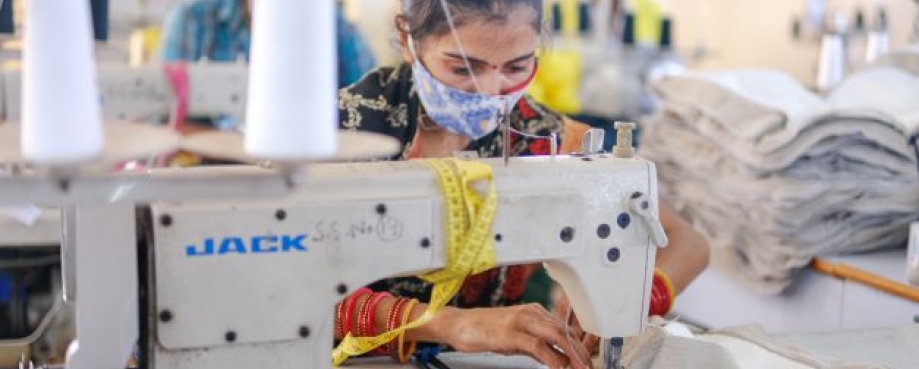
The Ethical Trading Initiative has joined forces with amfori, Fair Wear Foundation, Sustainable Apparel Coalition, Transformers Foundation, and manufacturer associations from the Sustainable Terms of Trade Initiative to advance effective mandatory human rights due diligence at the EU level.
Together, our organisations collaborate with most brands and retailers from EU market countries and represent manufacturers that makeup around 50 % of extra-EU imports of garments and textiles. Coming from a sector classified as high-risk by the OECD, our input is critical in the development of the EU Corporate Sustainability Due Diligence (EU CSDD) Directive.
Drawing on our collective knowledge and combined experience, we call for the EU decision-makers to take a comprehensive due diligence approach that is risk-based. A well-designed mandatory human rights due diligence benefits all stakeholders, including the tens of thousands of workers, throughout any given supply chain.
“The garment and footwear sector is one of the largest consumer goods sectors in the world. The OECD classifies it as a high-risk sector. Together, our members account for over 50 % of extra-EU imports of garments and textiles. Our input is not only critical but vital in the development of the EU Corporate Sustainability Due Diligence (EU CSDD) Directive.”
Peter McAllister, ETI’s Executive Director
We support the EU's commitment to implement a regulatory approach to human rights due diligence. The EU CSDD must capture companies' responsibilities to respect human rights and the environment as framed in the United Nations Guiding Principles on Business and Human Rights (UNGPs) and the Organisation for Economic Cooperation and Development (OECD) Guidelines for multinational enterprises. The EU CSDD Directive must offer clarity and legal certainty.
We, therefore, set out a number of joint recommendations.
1. Performing Human Rights and Environmental Due Diligence should be risk-based.
The current proposal limits the scope of the due diligence duty by introducing the ambiguously defined concept of 'established relationships,' making due diligence a relationship-based duty. We ask EU decision-makers to take an approach that is genuinely risk-based and in line with the UN Guiding Principles and the OECD guidelines.
2. Due diligence does not shift responsibility.
The proposal suggests that companies within its scope rely on contractual assurances and audit/verification processes to show compliance and results. Furthermore, we propose that future legislation also ensures that a revision of purchasing practices is part of due diligence responsible purchasing practices by EU market companies, encouraging proper engagement with supply chain partners and other stakeholders as part of the prevention and mitigation activities.
3. Due diligence legislation must provide certainty and clarity.
The current proposal contains many concepts that are not clearly defined, leaving room for multiple interpretations. We strongly recommend one set of guidelines at the EU level to provide clear and coherent guidance for member states and companies. We advise the EU decision-makers to provide more clarity and certainty by aligning the current proposal closely to the UNGPs and OECD guidelines, providing clear and uniform guidance to Member States for implementing the Directive.
Read the complete recommendations here.
With a combined turnover of over £166 bn, ETI company members are already deeply committed to practising and implementing risk-based human rights due diligence across their supply chains. As a result, without a doubt, all businesses will profit from an EU-wide level playing field and suppliers, including their workers, will benefit from the responsible purchasing practices of their customers.
ETI has consulted extensively with its corporate, NGO and Trade Union members and will be publishing its own detailed recommendations on the EU CSDD Directive later this week.
